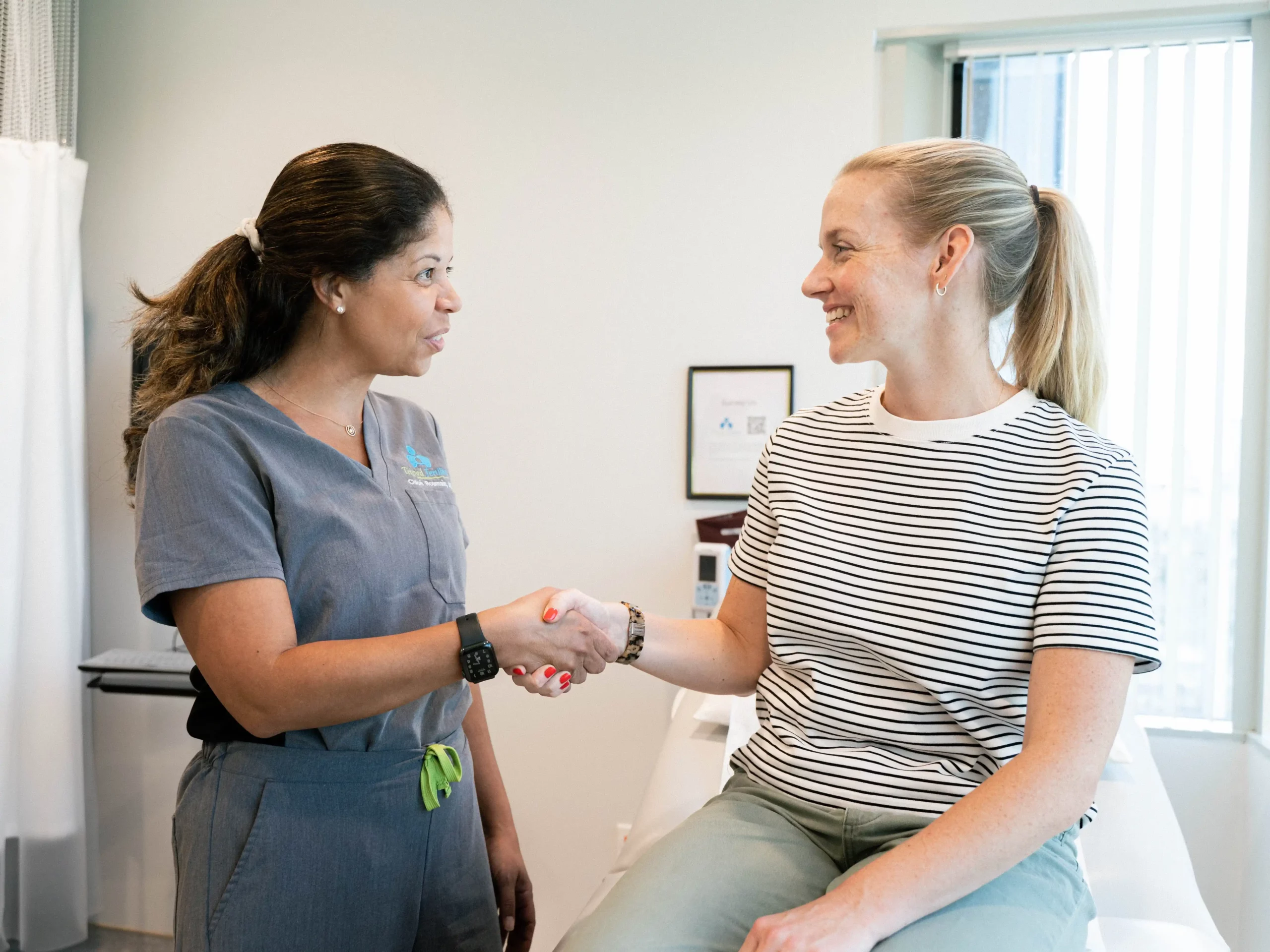
Get In Touch

Get In Touch
Bespoke Care, Outstanding Results
Really Friendly Team

Conveniently located close to the 401, 404, and 407 with easy parking
Atria III
Suite 901
2225 Sheppard Ave E
Toronto, ON M2J 5C2
Phone: (905) 201-3420
Toll-free number: 1 (844) 974-7631
Fax: (905) 471-7447
Email: info@tripodfertility.com
Hours of Operation:
Monday to Thursday 7am-5pm
Friday 7am-3pm
Saturday to Sunday 7am-12pm for cycle monitoring only
Parking
You will find plenty of paid on-street parking right outside of our clinic. To find our underground parking garage, search “Atria 3 Parkade” on your navigation app. When travelling SOUTH on Settlers Road, turn right at the first stop sign to find the entrance of the underground parking. Once underground, follow the yellow signs overhead to the Atria III parking section. You will see an elevator labeled Atria III which will bring you to the main lobby of our building. Take the second set of elevators to the 9th floor, Suite 901.

